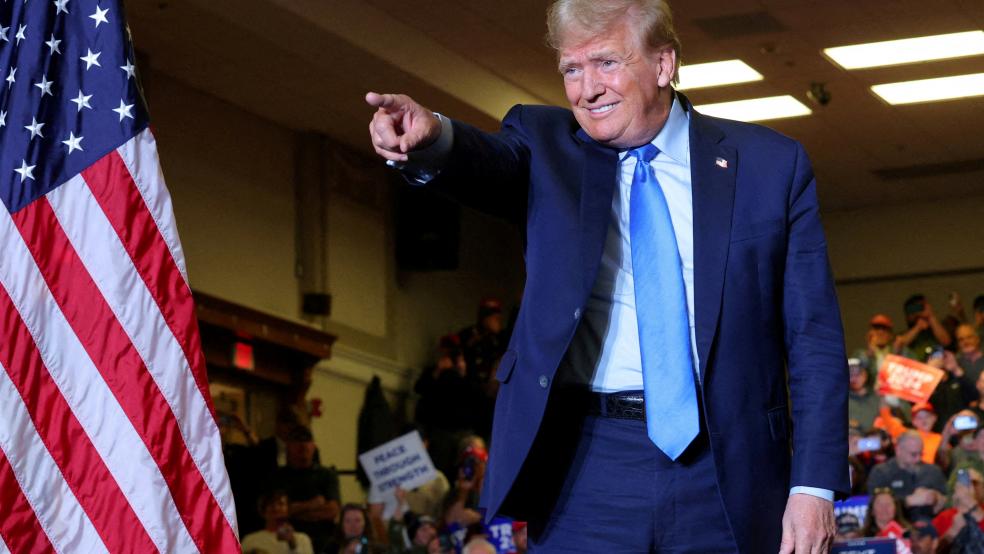Republican presidential nominee Donald Trump has found another tax he wants to eliminate: federal taxes on overtime pay.
Campaigning on Thursday in Tucson, Arizona, Trump told supporters that his new proposal would reward people who work longer hours and incentivize them to do so. “The people who work overtime are among the hardest-working citizens in our country, and for too long no one in Washington has been looking out for them,” he said. “If you’re an overtime worker, when you’re past 40 hours a week, think of that, your overtime hours will be tax-free.”
Trump provided no details on how the tax break would work, but the proposal joins a list of other vaguely defined proposed cuts that now includes taxes on Social Security benefits and tip income, as well as an extension of the 2017 individual tax cuts that are scheduled to expire at the end of 2025.
Taken together, Trump’s proposed tax cuts would cost upwards of $6 trillion in lost revenues over 10 years.
Experts not thrilled: Not surprisingly, Trump’s opponent, Vice President Kamala Harris, didn’t appear to be impressed, although she may feel pressure to imitate his pledge eventually, as she did with his proposal to eliminate taxes on tips.
“He is desperate and scrambling and saying whatever it takes to try to trick people into voting for him,” Joseph Costello, a Harris campaign spokesman, told The Wall Street Journal. “If he takes power again, he will only look out for himself and his billionaire buddies and their big corporations.”
Some Republicans also expressed their doubts. Douglas Holtz-Eakin, who led the Congressional Budget Office during the George W. Bush administration and now works at a conservative think tank, criticized Trump’s approach for its lack of logic.
“The 180-degree transformation from Reagan to Trump is now complete—from low tax rates on a principled definition of income to zero tax rate on a completely unprincipled definition of income,” he told the Journal. “Tax policy by drunken sailors would be more disciplined.”
An analysis by the conservative Tax Foundation found that on a static basis — that is, without accounting for changes in behavior and dynamic feedback — eliminating federal income taxes on overtime would cost $227 billion over 10 years. If the cut included payroll taxes used to fund Social Security and Medicare, another $145 billion would be lost. However, the change would likely drive significant changes in behavior, which, when modeled by the Tax Foundation, add up to a revenue loss of more than $1 trillion.
More broadly, the Tax Foundation analysts criticized the seemingly random nature of Trump’s proposal. “From a tax policy perspective, there is no principled reason to treat income derived from overtime work any differently than income earned from a taxpayer’s first 40 hours of work,” they wrote. “In short, exempting overtime would unnecessarily complicate the tax code, increase compliance and administrative costs, and reduce neutrality by favoring certain work arrangements over others.”
Other critics noted that the proposal would be easy to abuse. “Trump’s claim that he would exempt overtime from taxes is deeply unserious. This policy would be incredibly easy to game,” said Heidi Shierholz, who heads the liberal Economic Policy Institute. “Employers could (and would) easily switch salaried, overtime-ineligible workers to hourly—and set the hourly wage so that, with overtime, they are paying no more than they paid before—and allow their workers to get the tax cut.”
Shierholz added that the winners from the plan would likely be high-income. “[A] huge share of the expenditures on this tax exemption would go to very highly paid workers,” she said. “And good lord, big-firm lawyers would love this.”
Taxes
Trump Says He’ll Push to End Taxes on Overtime Pay

Reuters/Brian Snyder



